You are here
New Releases
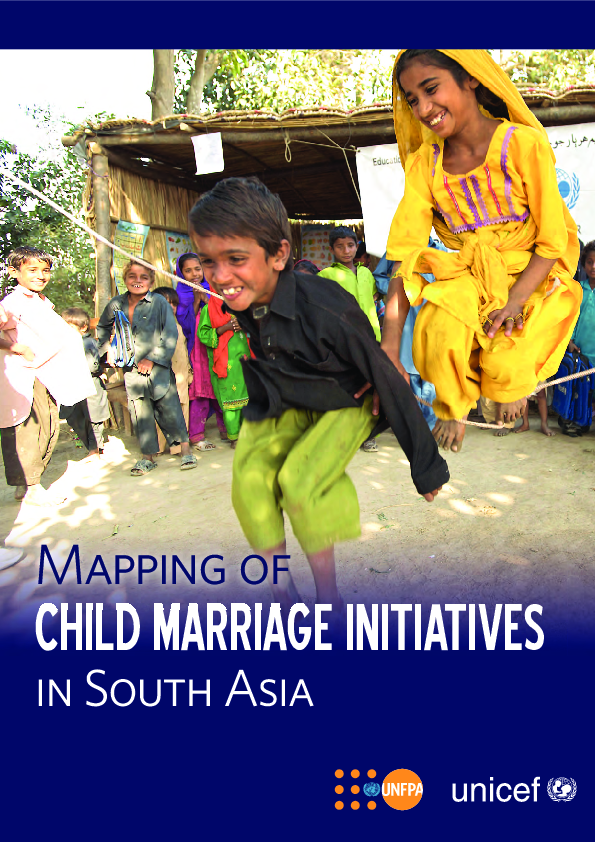
Mapping of Child Marriage Initiatives in South Asia
This report lays out by country significant pieces of work that contribute to ending child marriage. It starts with an overview of major regional initiatives, and then it covers each of the eight SAARC countries, including Nepal, in turn. If a programme has been evaluated, the findings related to child marriage are mentioned in the notes.
An attempt was made to group programmes according to whether the lead agency is governmental, UN, civil society or NGO, but these are roughly drawn distinctions due to the high level of cooperation and partnership across different types of organizations. A number of policies, key studies, and national plans are included as well for a better understanding of the legal foundation of child marriage and adolescent empowerment work. These are not comprehensive.
District Disaster Preparedness and Response Plan, Dang
This District Disaster Preparedness and Response Plan for 2015/16 (दाङ जिल्लाको विपद् पूर्वतयारी तथा प्रतिकार्य योजना २०७२-७३) is an updated vulnerability assessment in Dang district that incorporates components of Minimum Initial Service Package (MISP) for reproductive health in emergencies. This plan (in Nepali) has been prepared by District Disaster Relief Committee (DDRC), Dang, with technical support of UNFPA, the United Nations Population Fund. In Dang district, UNFPA is currently the Disaster Lead Support Agency for disaster preparedness and response.
Minimum Initial Service Package for Reproductive Health in Post-Earthquake Nepal
When the earthquake struck Nepal in the spring of 2015, 1.4 million women of child-bearing age were affected. An estimated 93,000 were pregnant. The Minimum Initial Service Package (MISP) is designed for them--a set of activities, it outlines essential sexual and reproductive health and gender-based violence prevention and support and plans for comprehensive services scale-up.
In September of 2015, we found that all MISP services and priority activities were largely available in both Kathmandu (ruban) and Sindhupalchowk (rural). Some services were only partially available, though and others were of questionable comprehensiveness and quality.
Recommendations:
- Establish a fund to finance emergency preparedness activities
- Strengthen RH coordination
- Address supply chain challenges
- Strengthen the GBV care and referral systems
- Facilitate activities to prevent maternal and newborn death and disability
- Strengthen HIV prevention and treatment
- Improve community awareness
- Ensure culturally appropriate menstrual hygiene products
- Engage at-risk groups, including adolescents, and provide appropriate services
- Invest in quality comprehensive RH services
Both these publications were published by Women's Refugee Commission six months after the devastating earthquake with the support of development partners, including UNFPA Nepal, to docment the implementation of MISP for reproductive health in Nepal.
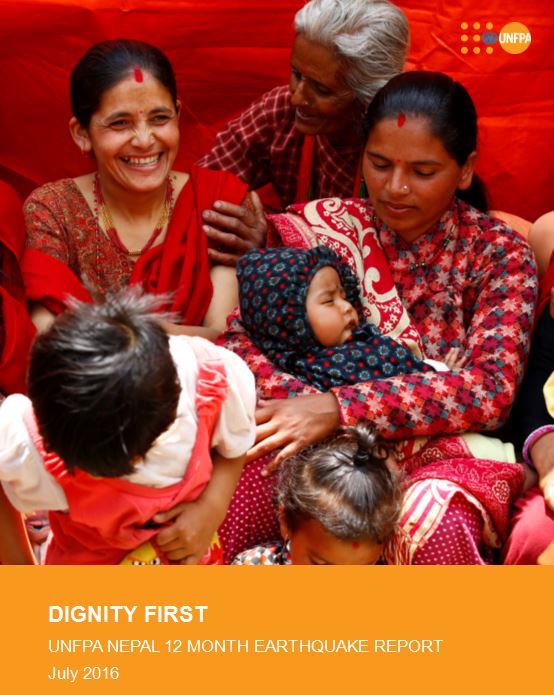
Dignity First: Nepal Earthquake One Year Report
2015 saw a lot of devastation, loss of lives and hardship. Over the past year, so much work has been done to help the country emerge and recover. We all saw how empowered young people continue to play a key role in the recovery efforts. We also saw how and why the dignity and special needs of women and girls should be prioritized at all times, including when a disaster strikes. It doesn’t stop there. We must continue to protect and uphold the dignity of women and girls every day. This one year report (April 2015-April 2016) — Dignity First — is about what services and support were provided to earthquake-affected people, particularly to address the sexual and reproductive health needs of women and girls as well as prevent and respond to gender-based violence. It’s also about the key lessons we learned from the earthquake. This report is the result of strong leadership from the Government of Nepal, generous support from many development partners and great support and collaboration from many implementing agencies and partners as well as young people. UNFPA, the United Nations Population Fund, is truly grateful to all of them. UNFPA Nepal looks forward to a continued collaboration with the government, parliamentarians, donors, partner organizations, civil society and young people to support Nepal to stay resilient.
National Strategy on Ending Child Marriage
सन् २०३० सम्म नेपालबाट बालविवाह अन्त्य गर्ने लक्ष्यसहित नेपाल सरकारले बालविवाह अन्त्यका लागि राष्ट्रिय रणनीति २०७२ जारी गरेको हो । नेपालको कानुनले २० वर्ष पूरा गरेपछि मात्र विवाहका लागि योग्य मानिएको भनिए पनि अझै २९ प्रतिशतको विवाह १८ वर्ष नपुग्दै हुने गरेको छ । किशोरकिशोरीसँग सम्बन्धित सबै मुद्दा सम्बोधन गर्न र बालविवाह अन्त्यका लागि कानुन कार्यान्वयन गर्न यस रणनीतिले प्रभावकारी भूमिका निर्वाह गर्नेछ भन्ने अपेक्षा यूएनएफपीए राख्दछ ।
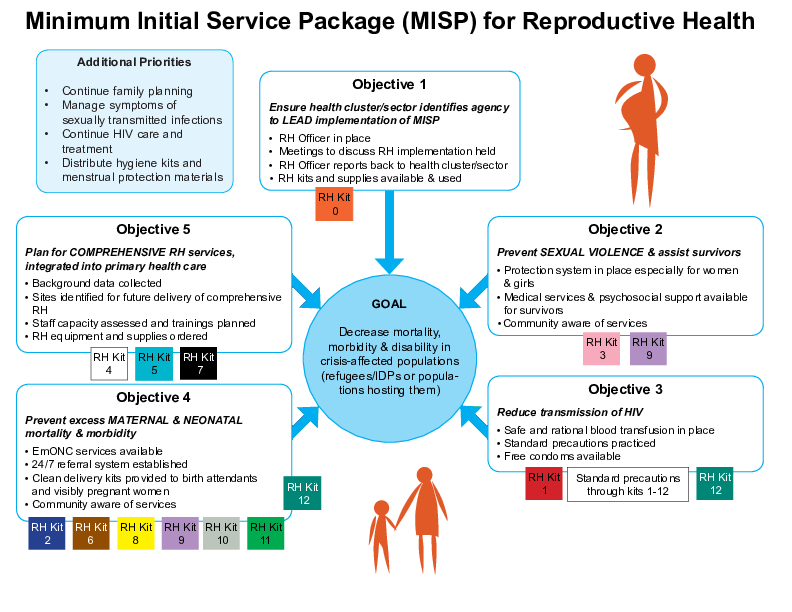
Minimum Initial Service Package for Reproductive Health Cheat Sheet
This Minimum Initial Service Package (MISP) cheat sheet provides a summary of MISP package for sexual and reproductive health (SRH) in emergency situations. It has been developed to help humanitarian workers, health workers, SRH coordinators and other stakeholders in Nepal to fulfill the reproductive health needs of the affected populations in an emergency setting.
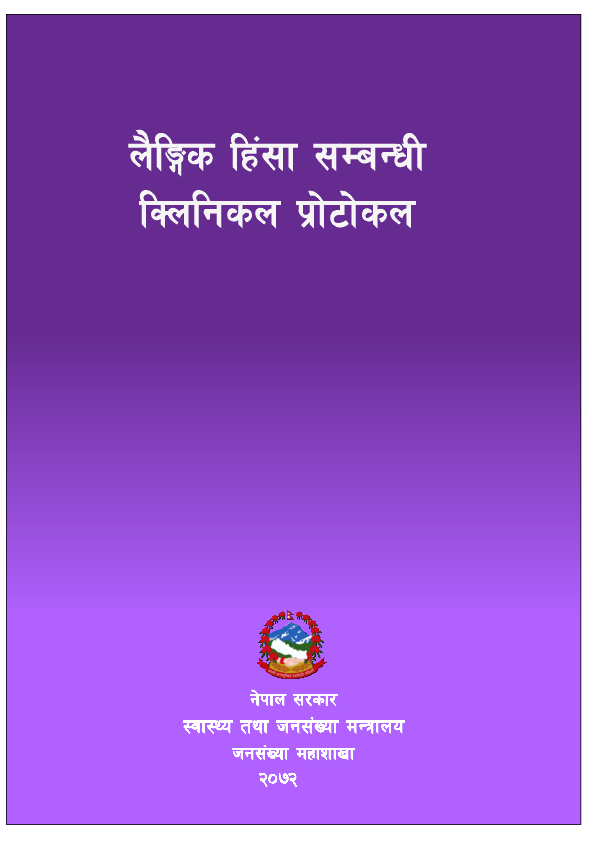
Clinical Protocol on Gender-Based Violence
This protocol in Nepali is the first national guideline for healthcare providers on management of gender-based violence (GBV) in Nepal. It aims at equipping health service providers with the best possible care to GBV survivors and empowering them to identify GBV survivors, manage cases and make appropriate referrals.
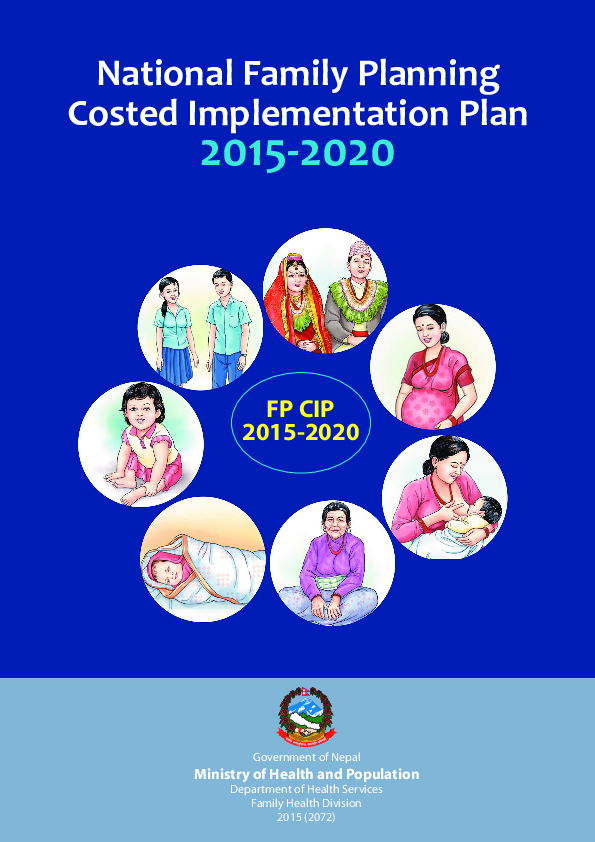
National Family Planning Costed Implementation Plan 2015-2020
This National Family Planning Costed Implementation Plan outlines national strategies and interventions that Nepal must adopt to ensure that high quality family planning services are available and accessible to all Nepali people as well as the resources reqired to realize this vision. This document is prepared by the Family Health Division under the Ministry of Health with technical and financial support of UNFPA, the United Nations Population Fund.
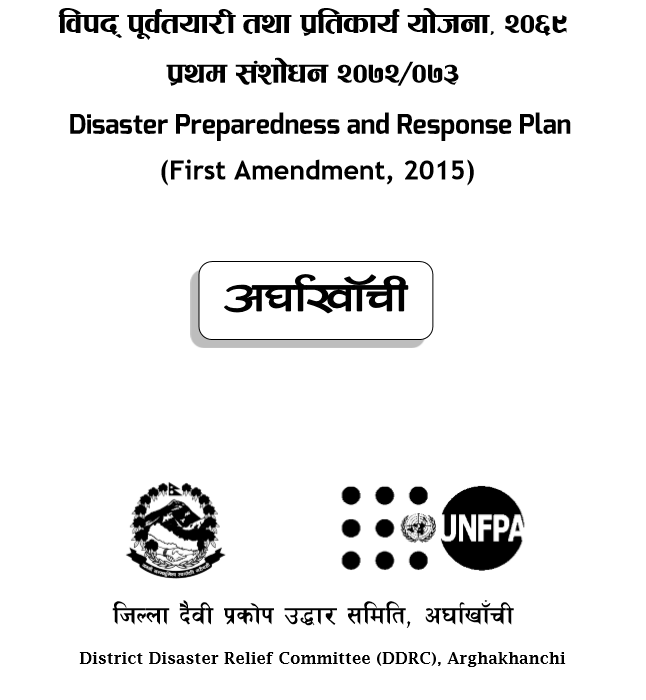
District Disaster Preparedness and Response Plan, Arghakhanchi
This District Disaster Preparedness and Response Plan for 2015 (अर्घाखाँची जिल्लाको विपद् पूर्वतयारी तथा प्रतिकार्य योजना (२०७२-२०७३) is a vulnerability assessment of Arghakhanchi district that incorporates components of Minimum Initial Service Package (MISP) for reproductive health in emergencies. This plan (in Nepali) has been prepared by District Disaster Relief Committee (DDRC), Dang, with technical support of UNFPA, the United Nations Population Fund.
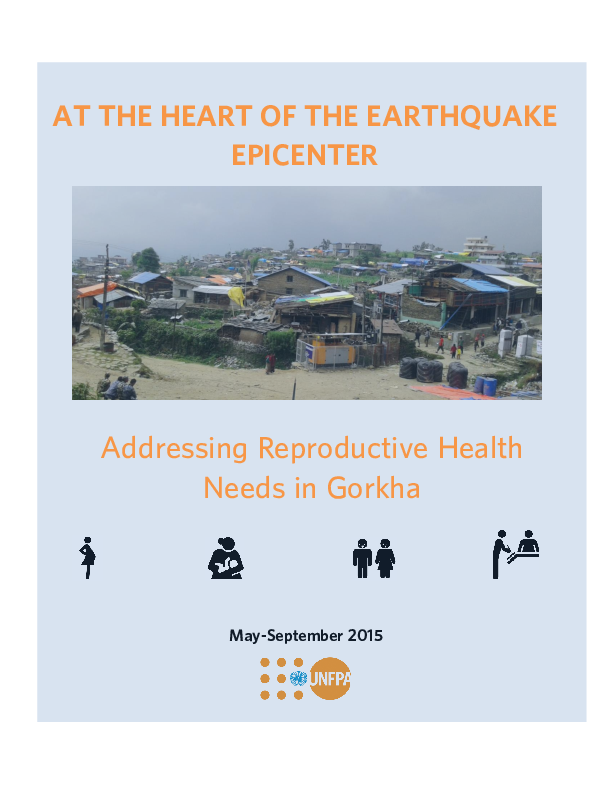
At the Heart of the Earthquake Epicenter
This document covers UNFPA's response to the devastating earthquake in Gorkha district, the epicenter of the April 25 disaster in Nepal, during the first five months.